Filter by
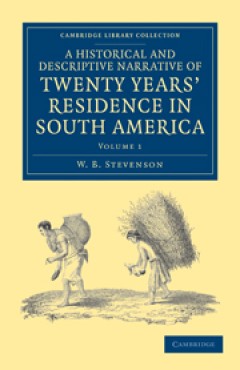
A Historical and Descriptive Narrative of Twenty Years' Residence in South Am…
In 1804 when W. B. Stevenson (fl. 1803–25) arrived on the small island of Mocha, just off the coast of South America, he stepped onto a continent on the brink of mass revolution. Over the next twenty years, he had an extraordinary range of experiences: as a traveller, a Spanish government official, a prisoner, and as secretary to an ex-Royal Navy admiral turned revolutionary. In this three-vo…
- Edition
- -
- ISBN/ISSN
- 9781139060585
- Collation
- -
- Series Title
- -
- Call Number
- -
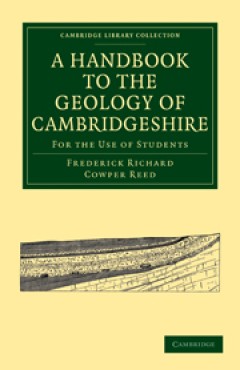
A Handbook to the Geology of Cambridgeshire For the Use of Students
Beneath Cambridgeshire's towns, villages, farmland, hills, fens and waterways lie the rocks that display a variety of geological landscapes. Basement rocks are buried under sandy deposits from ancient tropical seas. The rising and tilting of the land due to large-scale movements permitted water flows that produced gradual alterations. Glaciation, erosion and dramatic variations in climate all w…
- Edition
- -
- ISBN/ISSN
- 9780511693410
- Collation
- -
- Series Title
- -
- Call Number
- -
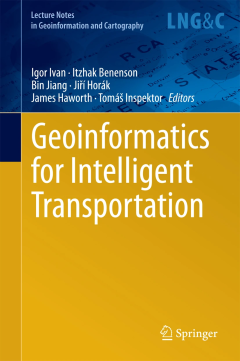
Geography Education in Japan
In a globalized market where the emerging workforce will increasingly travel within their nations and abroad for work opportunities, it is valuable to learn about the international education system and practices, to assess the competition. For example, annual comparison of student performance is measured across math and science subjects globally. What is not well known is how geography educatio…
- Edition
- -
- ISBN/ISSN
- 978-3-319-11462-0
- Collation
- XX, 243
- Series Title
- -
- Call Number
- 910 GEO

A Geographical Survey of Africa Its Rivers, Lakes, Mountains, Productions, S…
James MacQueen (1778–1870) was a British geographer and also one of the most outspoken critics of the methods of the British anti-slavery campaign in the 1820s and 1830s. Although he never visited Africa, he became an acknowledged expert on the continent, through reading all available accounts, ancient and modern, as well as interviewing slave merchants while managing a sugar plantation in th…
- Edition
- -
- ISBN/ISSN
- 9781139034562
- Collation
- -
- Series Title
- Cambridge Library Collection - African Studies
- Call Number
- -

A Geographical and Commercial View of Northern Central Africa
James MacQueen (1778–1870) was a British geographer fascinated by the problem of the River Niger. He set out to try to establish (on the basis of accounts by explorers, traders and missionaries), that one and the same river flowed continuously through Africa and into the Atlantic Ocean, thus challenging long-established beliefs that African rivers either disappeared into the sand or terminate…
- Edition
- -
- ISBN/ISSN
- 9781139034579
- Collation
- -
- Series Title
- Cambridge Library Collection - African Studies
- Call Number
- -
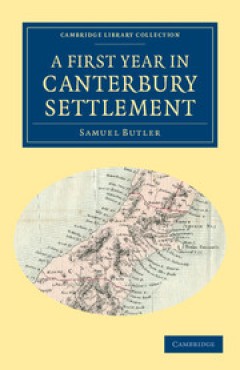
A First Year in Canterbury Settlement
Samuel Butler (1835–1902) became famous with his satirical Utopian novel Erewhon, based on his experiences as a sheep farmer in New Zealand and published, initially anonymously, in 1872. This earlier book, published in London in 1863 while he was still abroad, is a compilation of his letters home. Having obtained a degree in Classics from Cambridge, Butler had left England in 1859 with genero…
- Edition
- -
- ISBN/ISSN
- 9781139108218
- Collation
- -
- Series Title
- Cambridge Library Collection - History of Oceania
- Call Number
- -
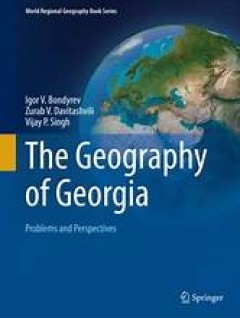
The Geography of Georgia
This book discusses the political and economic history and geography of Georgia, the problems it has faced, and how it has overcome and is still overcoming them. In most countries, at the end of the 20th century the successful resolution of social-economic, political, demographic and ecological problems was largely dependent on effectively protecting the population and economic assets from natu…
- Edition
- 1
- ISBN/ISSN
- 978-3-319-05413-1
- Collation
- XVIII, 228, 37 b/w illustrations, 150 illustrations in colour
- Series Title
- World Regional Geography Book Series
- Call Number
- -

The European Union and the BRICS
This book explores the relations between the EU and the BRICS in the areas of politics, economic development, trade and security. The contributions cover topics such as the position of the EU and BRICS in the global order and the EU as a "normative power," as well as the evolution, characteristics and institutionalization of BRICS and the roles of its member countries Brazil, Russia, India, Chi…
- Edition
- 1
- ISBN/ISSN
- 978-3-319-19099-0
- Collation
- X, 180, 3 illustrations in colour
- Series Title
- -
- Call Number
- -
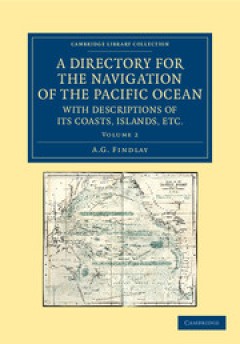
A Directory for the Navigation of the Pacific Ocean, with Descriptions of its…
The English geographer and hydrographer Alexander George Findlay (1812–75) had observed that navigators of his time had to consult a considerable number of documents to gather the information they needed to sail the Pacific Ocean safely. Not only was this highly impractical, it also exposed seafarers to conflicting information that could lead to their demise. First published in 1851, this two…
- Edition
- -
- ISBN/ISSN
- 9781139583114
- Collation
- -
- Series Title
- Cambridge Library Collection - Maritime Exploration
- Call Number
- -
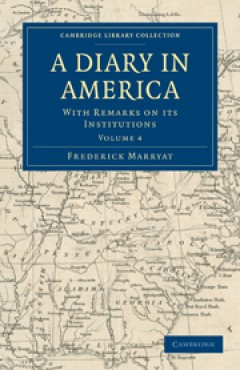
A Diary in America With Remarks on its Institutions
Captain Frederick Marryat (1792–1848) was a distinguished naval officer, today best remembered as a novelist (particularly of stories for children), often drawing on his own experiences. He also edited a radical journal, and wrote non-fiction, including an attack on press-gangs, which damaged his career. He spent 1837 and 1838 travelling in North America, publishing his impressions in this un…
- Edition
- -
- ISBN/ISSN
- 9781139058704
- Collation
- -
- Series Title
- Cambridge Library Collection - North American History
- Call Number
- -
 Computer Science, Information & General Works
Computer Science, Information & General Works  Philosophy & Psychology
Philosophy & Psychology  Religion
Religion  Social Sciences
Social Sciences  Language
Language  Pure Science
Pure Science  Applied Sciences
Applied Sciences  Art & Recreation
Art & Recreation  Literature
Literature  History & Geography
History & Geography